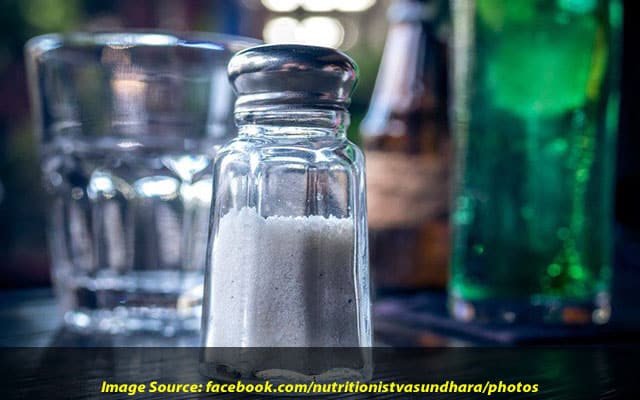New York: Love to add salt to your food at the table? Beware, you may be at higher risk of dying prematurely from any cause, warned a study of more than 500,000 people.
The study, published in the European Heart Journal, defines premature death as death before the age of 75 years.
Researchers from Tulane University in the US showed that those who always added salt to their food had a 28 per cent increased risk of dying prematurely, compared to those who never or rarely added salt.
About three in every hundred people aged between 40 and 69 die prematurely. The increased risk from always adding salt to food seen in the current study suggests that one more person in every hundred may die prematurely in this age group.
In addition, the study found a lower life expectancy among people who always added salt compared to those who never, or rarely added salt. Men and women in the habit of always adding salt to their food had 1.5 years and 2.28 years knocked off the life expectancy.
The study “provides novel evidence to support recommendations to modify eating behaviours for improving health”, said Professor Lu Qi, from the University’s School of Public Health and Tropical Medicine in the US.
“Even a modest reduction in sodium intake, by adding less or no salt to food at the table, is likely to result in substantial health benefits, especially when it is achieved in the general population,” Qi added.
However, the researchers also found that the risks of salt tended to be reduced slightly in people who consumed the highest amounts of fruit and vegetables, although these results were not statistically significant.
“We were not surprised by this finding as fruits and vegetables are major sources of potassium, which has protective effects and is associated with a lower risk of premature death,” said Qi.
In an editorial to accompany the paper [3], Professor Annika Rosengren, a senior researcher and professor of medicine at the Sahlgrenska Academy, University of Gothenburg, Sweden, who was not involved with the research, writes that the net effect of a drastic reduction in salt intake for individuals remains controversial.
“Given the various indications that a very low intake of sodium may not be beneficial, or even harmful… it is important to distinguish between recommendations on an individual basis and actions on a population level,” Professor Annika Rosengren, Professor of medicine at University of Gothenburg in Sweden, wrote in an editorial accompanying the paper.
Read more:
Understanding the importance of salt, oil, spices and sugar
Mars once had salt lakes similar to Earth: Study
Tata salt ‘safe for consumption’, says company
Good sleep cuts appetite for sweet, salty food
Eating less salt may not lower your BP, says study



















